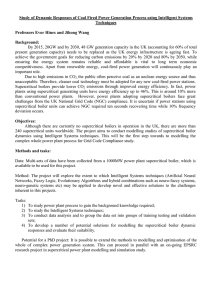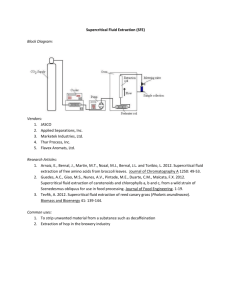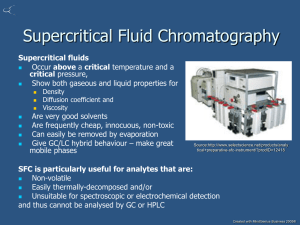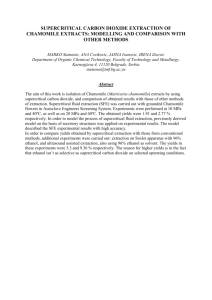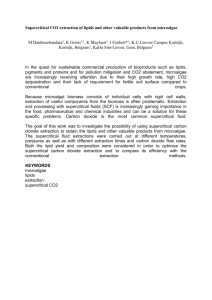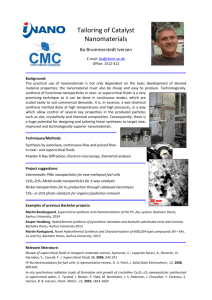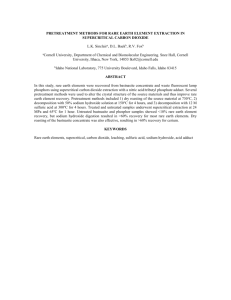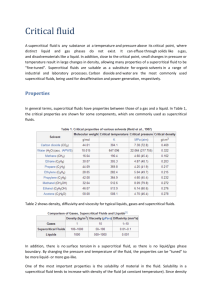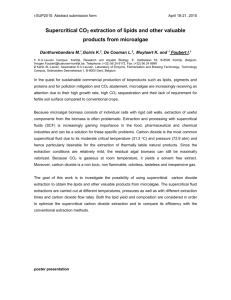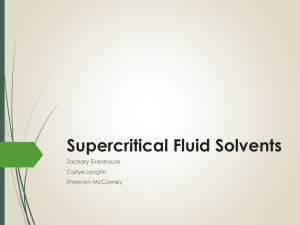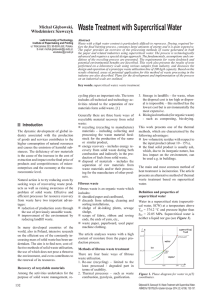Green Chemistry Poster_DRAFT ONLY_Plante
advertisement
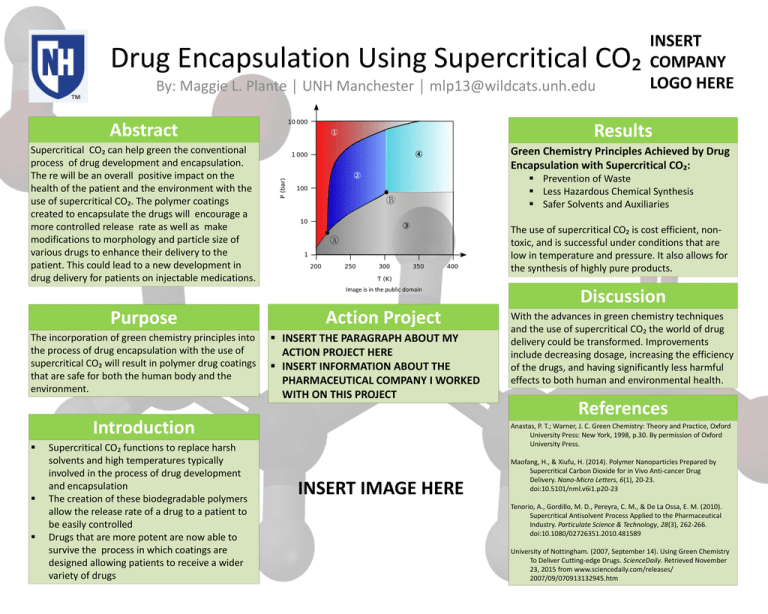
Drug Encapsulation Using Supercritical CO₂ By: Maggie L. Plante │ UNH Manchester │ mlp13@wildcats.unh.edu INSERT COMPANY LOGO HERE Abstract Results Supercritical CO₂ can help green the conventional process of drug development and encapsulation. The re will be an overall positive impact on the health of the patient and the environment with the use of supercritical CO₂. The polymer coatings created to encapsulate the drugs will encourage a more controlled release rate as well as make modifications to morphology and particle size of various drugs to enhance their delivery to the patient. This could lead to a new development in drug delivery for patients on injectable medications. Green Chemistry Principles Achieved by Drug Encapsulation with Supercritical CO₂: Purpose The incorporation of green chemistry principles into the process of drug encapsulation with the use of supercritical CO₂ will result in polymer drug coatings that are safe for both the human body and the environment. Prevention of Waste Less Hazardous Chemical Synthesis Safer Solvents and Auxiliaries The use of supercritical CO₂ is cost efficient, nontoxic, and is successful under conditions that are low in temperature and pressure. It also allows for the synthesis of highly pure products. Image is in the public domain Discussion Action Project With the advances in green chemistry techniques and the use of supercritical CO₂ the world of drug delivery could be transformed. Improvements include decreasing dosage, increasing the efficiency of the drugs, and having significantly less harmful effects to both human and environmental health. INSERT THE PARAGRAPH ABOUT MY ACTION PROJECT HERE INSERT INFORMATION ABOUT THE PHARMACEUTICAL COMPANY I WORKED WITH ON THIS PROJECT Introduction Supercritical CO₂ functions to replace harsh solvents and high temperatures typically involved in the process of drug development and encapsulation The creation of these biodegradable polymers allow the release rate of a drug to a patient to be easily controlled Drugs that are more potent are now able to survive the process in which coatings are designed allowing patients to receive a wider variety of drugs References Anastas, P. T.; Warner, J. C. Green Chemistry: Theory and Practice, Oxford University Press: New York, 1998, p.30. By permission of Oxford University Press. INSERT IMAGE HERE Maofang, H., & Xiufu, H. (2014). Polymer Nanoparticles Prepared by Supercritical Carbon Dioxide for in Vivo Anti-cancer Drug Delivery. Nano-Micro Letters, 6(1), 20-23. doi:10.5101/nml.v6i1.p20-23 Tenorio, A., Gordillo, M. D., Pereyra, C. M., & De La Ossa, E. M. (2010). Supercritical Antisolvent Process Applied to the Pharmaceutical Industry. Particulate Science & Technology, 28(3), 262-266. doi:10.1080/02726351.2010.481589 University of Nottingham. (2007, September 14). Using Green Chemistry To Deliver Cutting-edge Drugs. ScienceDaily. Retrieved November 23, 2015 from www.sciencedaily.com/releases/ 2007/09/070913132945.htm
